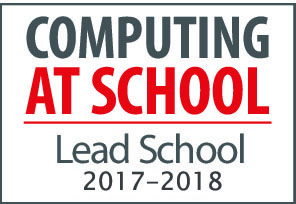Subject Leader
Mr J Bywaters – JBywaters@oriel.w-sussex.sch.uk
Teaching Staff
Mr A Bairsto – abairsto@oriel.w-sussex.sch.uk
Mr B Cleaveley – bcleaveley@oriel.w-sussex.sch.uk
Mr F Salle – fsalle@oriel.w-sussex.sch.uk
Miss Charlotte Hook – chook@oriel.w-sussex.sch.uk
“I think there is a world market for maybe five computers”
– Thomas Watson, 1943 (Chairman of IBM)


Using your skills in the future…..
Careers you could work in if you study tech……
Click here to see the types of career you could follow if studying technology is of interest to you
Subject Overview
The Computing department comprises of teachers who are enthusiastic about the ever changing technology industry. This enthusiasm means that we constantly develop our curriculum to ensure that students always have access to a relevant yet challenging curriculum that will provide them with the ICT skills they need to flourish in today’s society.
Oriel has 6 fully equipped, air conditioned, IT suites meaning that every student who studies Computing will have their own computer to use in their lesson. At Key Stage 3 students will have 2 periods of Computing across a fortnight and at Key Stage 4 students will have 5 lessons a fortnight.
Key Stage 3 Curriculum
Throughout years 7, 8 and 9 students will study a wide range of topics that include:
- Coding – Scratch and Python
- Algorithms
- Data representation
- Networks
- E-Safety
- Website production
- App Development
- Graphics Editing
Key Stage 4 Curriculum
GCSE Computer Science (OCR)
This course gives students a real, in-depth understanding of how computer technology works. It offers an insight into what goes on ‘behind the scenes’, including computer programming, which many students find absorbing.
Through this qualification students can develop:
- Their understanding of current and emerging technologies and how they work
- Their use of algorithms in computer programs
- Computer programs to solve problems
BTEC Level 2 in Digital Information Technology
Across two internally assessed components pupils will develop design skills with a clear focus on audience and context from a scenario which will be set by the exam board. Pupils will also learn how to engage with a large data set with a view to collecting, presenting and interpreting the data. A third component, assessed externally, will focus on a 90 minute examination surrounding effective digital working practices. The context of this assessment will also be dictated by the exam board.
Key Stage 5 Curriculum
A Level Computer Science (OCR)
This modern qualification gives an insight into a range of computing systems, including an understanding of the principles of programming and the solving of problems.
Through this qualification, students can develop:
- The capacity to think creatively, innovatively, analytically, logically and critically
- An understanding of the organisation of computer systems
- The ability to apply skills, knowledge and understanding of computers, including programming, in a range of contexts to solve problems
Assessment is based on two externally assessed written exams at the end of Year 2 (40% each) and one internally assessed project (20%)
Level 3 Cambridge Technical Introductory Diploma in IT
If you are interested in computing and developing applications, then this course is the right one for you. It can work as a supplement to A level Computing to ensure students have a rounded IT education, or as an alternative for those less interested in programming who still want to pursue a career in the industry.
The applications developer pathway you will study focuses on the development of a range of applications across platforms and sectors. This allows you to gain the right combination of knowledge, understanding and skills required for the 21st century, enabling you to demonstrate the skills of writing specifications, and the design, build, testing and implementation of applications.
You will also study for exams in the fundamentals of IT, covering hardware, networks, software, the ethical use of computers and how businesses use IT, as well as the use of information from a global perspective, covering the use of information in the public domain, in the cloud and across the Internet, by both individuals and organisations .
